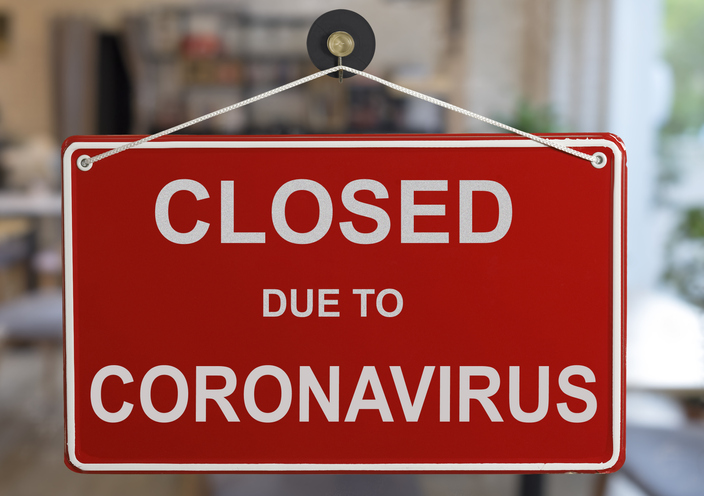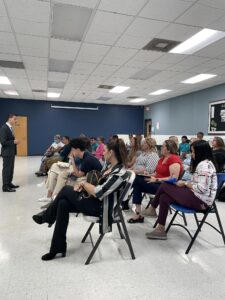March 28, 2020
Nicholas F. Talvacchia, Esq. | Jennifer B. Barr, Esq.
NJDEA PROGRAMS
The New Jersey Economic Development Authority (“NJEDA”) was authorized by Governor Phil Murphy in recent signed legislation to provide relief to New Jersey small and mid-sized businesses. This package of initiatives will provide more than $75 million of both State and private financial support. If more resources become available through additional State, Federal, and philanthropic sources, it is expected that these initiatives will grow to more than $100 million.
The NJEDA initiatives will complement the forthcoming federal economic recovery initiatives.
There is a fixed amount available to fund these programs. We recommend early application.
Through both grants and loans, the NJDEA approved the following programs:
Small Business Emergency Assistance Grant Program
- For businesses and non-profits with between 1 and 10 full time employees
- Intended to stabilize their operations and reduce the need for layoffs or furloughs
- Targeted for payroll and working capital support, not capital expenses such as construction
- $1000 per FT employee, maximum of $5,000 in grants
- Includes retail, arts, entertainment, recreation, accommodation, food service, and other services – such as repair, maintenance, personal, and laundry services
- Excludes home-based businesses, and businesses related to gambling or adult services
Small Business Emergency Assistance Loan Program
- For businesses and non-profits with less than $5 million in annual revenue
- Intended to help entities that were closed, reduced hours, had 20% decline in revenue, or a disrupted supply chain
- $100,000 direct loan, with flexible terms such as 10-year amortization, 0% interest, 12-month deferred repayment
- Includes entities in business for at least one year, must show negative impact related to COVID-19, and must certify that entity will make best efforts to not lay off employees or will rehire employees as soon as possible
- Excludes home-based businesses, businesses related to gambling or adult services
Community Development Finance Institution (CDFI) Emergency Loan Loss Reserve Fund
- Provides loan guarantees to CDFIs for working capital loans to businesses that have been directly impacted by COVID-19
- Loans can be made by the CDFI to companies that have certified it has been adversely affected (i.e. closed, reduced hours, reduced revenue, etc.)
- $75,000 loan amount per company
- Interest rate for the loan must be lower than 3.75%
- Loans must provide flexible loan structure such as deferred payments, moratoriums on interest for 6 months, etc.)
- Loan amount cannot exceed five years
CDFI Emergency Assistance Grant Program
- $250,000 in grant funding per entity
- To support the scale-up of the organization, tech support, and underwriting capacity, including hiring staff
- Allows the CDFIs to buy down interest rates on any COVID-19 related emergency working capital loan to provide impacted businesses with lower-costs and more flexible financing
CDFIs include:
UCEDC (United Counties Development Corp;)
GNEC (Greater Newark Enterprise Corp.)
RBAC (Regional Business Assistance Corp.)
NJCLF (New Jersey Community Loan Fund)
CBAC (Cooperative Business Assistance Corp.)
NJ Entrepreneur Support Program
- Intended to encourage private sector investors to provide additional working capital loans to entrepreneurial businesses
- Provides a guarantee of an investor loan advanced for working capital for an entrepreneurial businesses impacted by COVID-19
- Investment must have been made after March 9, 2020, program is retroactive to that date
- NJDEA will guarantee 80% of the total investment amount, not to exceed $200,000 per entrepreneurial company
- The entrepreneurial business must have:
- minimum of 50% employees in NJ
- less than 25 total employees
- under $5 million in revenue
- corporate HQ in NJ
- in one of 8 sectors as follows: advanced manufacturing, information technology, life sciences, finance/insurance, clean energy, food/beverage, advanced transportation, film/digital media
- Investors can be individuals, trusts, or corporations, and must already have equity interest/position in the company
- Investors need not be NJ residents
Small Business Emergency Assistance Guarantee Program
- Pilot program that makes available one-year first loss guarantees of permanent working capital loans and lines of credit from specified “Premier Lender” banks.
- Intended to cover operating expenses for small businesses and non-profits impacted by COVID-19
- Provides 50% guarantees on working capital loans and provides a waiver of loan fees
- Premier Lenders include, among others:
- BB&T
- Fulton Bank
- M&T Bank
- Ocean First Bank
- Sturdy Savings Bank
- TD BAnk
- Businesses eligible for these loans must have $5 million or less in annual revenue and in existence for at least one year; home-based businesses ineligible
Emergency Technical Assistance Program
- This program will support technical assistance to New Jersey-based companies applying for assistance through the U.S. Small Business Administration
Existing NJEDA Business Customers
- 3-month payment moratorium for eligible businesses on direct loans and premier lender participation loans (pending approval by the agency bank)
- NJEDA is also allowing collateral releases, subordinations and substitutions on business assets
- Late fees on loan repayments and loan modification fees will be waived for impacted businesses
- NJDEA has also waived certain requirements for employee presence in the office for programs under Grow NJ, HUB, BEIP, and BRRAG
- Under Grow NJ, the NJDEA has discretion to extend time to file project completion certification under certain circumstances
US SMALL BUSINESS ADMINISTRATION
Because New Jersey is approved for federal disaster assistance, New Jersey businesses are available to apply for Economic Injury Disaster Loans through the Small Business Administration (SBA).
Economic Injury Disaster Loans (EIDLs)
- Loans are for working capital for small businesses (including small agriculture cooperatives and aquaculture), and private non-profits of all sizes
- Intended to assist through the disaster recovery period
- Must have sustained economic injury
- Credit requirements: must have an acceptable credit history, ability to repay, collateral for loans over $25,000
- Interest rate is 3.75
- Loan term is a 30-year maximum
- Amount of loan is limited at $2,000,000
The attorneys at Cooper Levenson can help your business apply for any of the above programs. Sign up for the latest news from Cooper Levenson.









